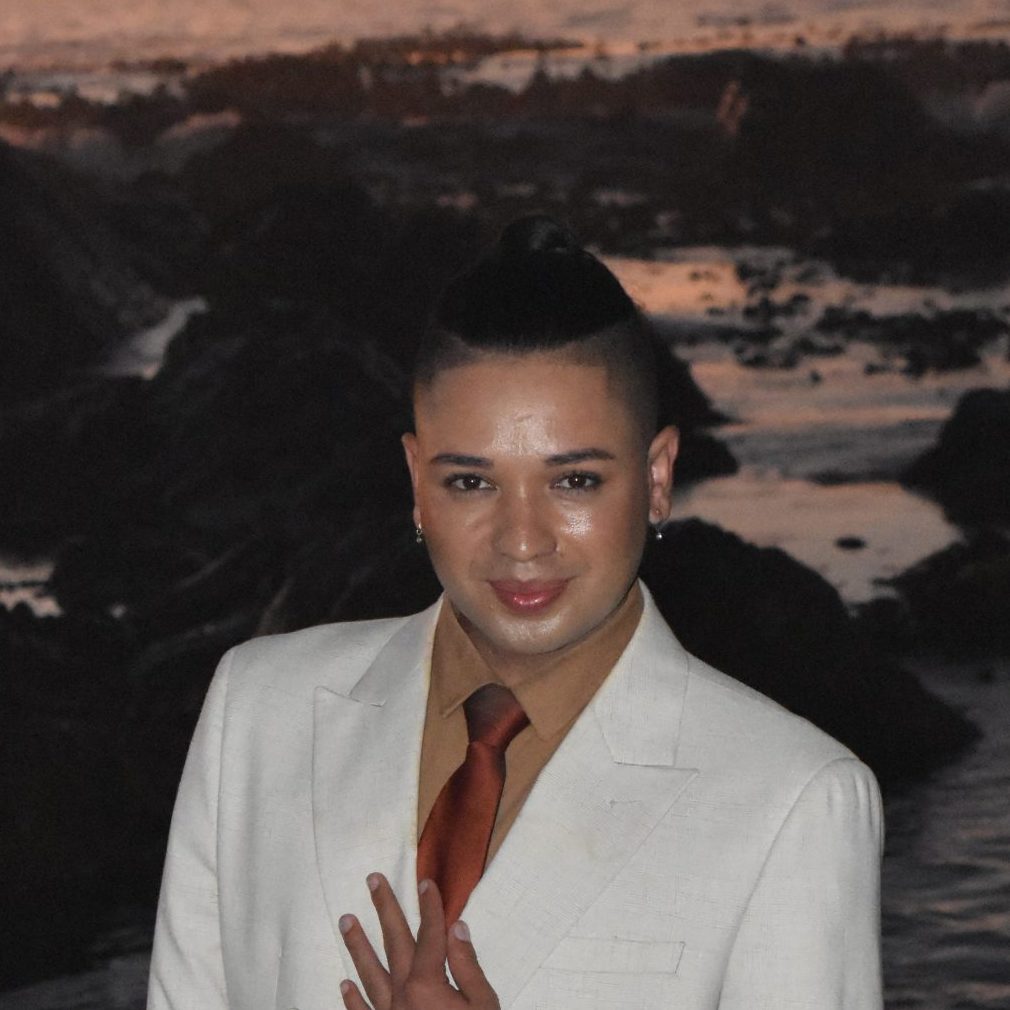Romario Cloete
PhD Fellow: UK-RSA Bilateral Digital Humanities Research Chair in Culture and Technics.
Romario Fabiano Cloete is a PhD candidate in the Department of Historical Studies at the University of the Western Cape, a UK–RSA Bilateral Digital Humanities Chair in Culture and Technics fellow, and a member of the Social Science Research Council. Growing up in Namakwaland in the Northern Cape, his journey has been guided by a commitment to making visible the overlooked histories of his community. His work moves across history, heritage, and visual culture, weaving together themes of memory, identity, language, environment, and activism. At its core lies scholarship as both an intellectual pursuit and a social responsibility, an insistence that research should empower communities, preserve their voices, and contribute to a better future.
Romario began his studies at UWC in 2016, completing a BA in Environmental Sustainability Studies, Geography, and Afrikaans and Nederlands, with additional coursework in English and Ethics. In 2019, he pursued an Honours degree in Afrikaans and Nederlands, where a module in Visual History opened new directions. His Honours paper, A Synchronous Investigation of Contemporary Namakwaland Afrikaans, explored language, culture, and regional identity, and later inspired his master’s research. He went on to complete a structured Master’s in Historical Studies at UWC, with coursework in History, Archives, and Museum and Heritage Studies. His mini thesis, The Legacies of Copper Mining in Namaqualand, examined the economic, social, and environmental impacts of South Africa’s first copper boom.
The study highlighted both the burdens and the resilience of mining communities, while arguing for more inclusive histories that reflect their contributions. His current PhD project investigates how photography as representation and as a resource-dependent industry produced extractive imaginaries of mining landscapes in the Northern Cape. By combining archival research, photovoice, and oral histories, he seeks to empower communities and reframe how extraction is pictured.

